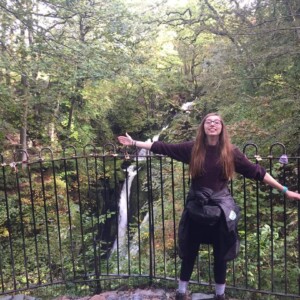
Lauren Tuffield
British Geological Survey
Project
Fertility of subduction and post subduction magmatism associated with porphyry- and epithermal-Cu-Au mineralisation in the Aegean using zircon geochronology and geochemistry
Supervisors
- Dr Jonathan Naden
- Dr Daniel Smith
- Dr Andrew Miles
- Dr Ian Millar
PhD Summary
Copper is becoming an increasingly important resource in the drive for cleaner transport and energy generation, due to the increasing use of electricity over fossil fuels. Most porphyry copper deposit research has been centred on the Andes, which is in a subduction setting. In order to better understand porphyry copper deposit formation processes, porphyry copper deposits in post-subduction settings need to be studied. This project focuses on the Aegean region which has extensive porphyry and epithermal mineralisation in a post-subduction setting. This allows for the study of the geochemistry and high precision U-Pb geochronology of accessory minerals (e.g. zircon and apatite) to develop porphyry copper deposit fertility indicators in a post-subduction setting.
Previous activity
I did my undergraduate degree in Geological Sciences at the University of Leeds, with a year abroad in Canada, at the University of Western Ontario.
I worked at the Natural History Museum as a Research Assistant in the LODE (London Centre for Ore Deposits and Exploration) Lab and research group, processing green rock samples and zircons through SEM and LA-ICP-MS for geochemistry and U-Pb dating.
Why did you choose doctoral research?
I have always been interested in geology since I was small, and I enjoyed my undergraduate degree in geology so much, I wanted to do more!
Why did you choose CENTA?
I was initially interested in CENTA because of the project, which allowed me to continue with my interests in ore deposits and geochemistry. I have since discovered that CENTA has an excellent training programme allowing you to develop wider skills alongside great support for doing your research.
Future plans
Studying for this PhD will allow me to gain skills that are essential for further research/jobs as a geoscientist. This includes data analysis, communication, coding, use of instruments such as SEM and LA-ICP-MS, and I will gain further in-depth knowledge about porphyry deposits and their formation and origins. I would like to continue my career in research in geochemistry after I finish my PhD, and I am also open to jobs in industry and laboratories.
